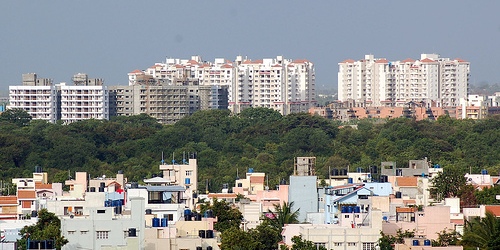India’s IT hub Bangalore
is now developing as a new investment hub in the country. Back in 1990s and in 2000s Bangalore was known for its moderate climate, defense and engineering mechanism and a paradise for the retirees’ also.
Over the last 12-15 years outsourcing and BPOs became household words of the city. The city became a brand and a beautiful blend for IT and an infusion destination for business and property.
The IT and the BPO sector created a new knowledge industry, it also resulted a young, affluent, easy going society, which was leisure focused. In 2000 the southern city saw a wave of businessmen who have idea and online presence to build or sell properties attracted the entrepreneurs.
The city also emerged as a launch market for many retail and lifestyle concepts and many international brands, who all wanted to make a market research from a elite audience without large investments.
Bangalore is not land-locked and hence the city has every potential to grow consistently. The urban planning was not able to keep the pace tough ring roads and few flyovers were created. Each expansion created townships which are self sufficient to grow as commercial and residential spaces.
The workforce aims to create second homes on the outskirts of the city, the new airport opened in 2008, 45 km from the city center has also contributed in the expansion.
The driving infusion has been the historical link with the NRI community. In the 1990s the developers started converting the small townships to high-end communities. These communities provide a way for the NRIs to keep rooted. The expat workers live in India with in a slice of suburban California at their door step.
The Bangalore accounts 25 pc of the state legislature according to a recent survey in electoral list. The investment mettle for Bangalore has been proven in the 2008-2012 recession period. The city started witnessing iconic properties.
It only remains for growth plans to get a bit more planned and include retail spaces and social infra as part of the whole, in order to create a long range vision for the city to be truly India’s most livable one.



















